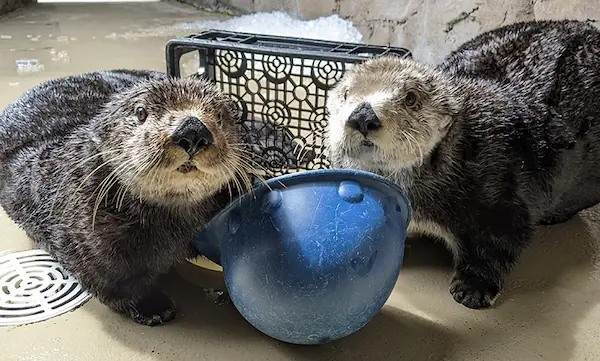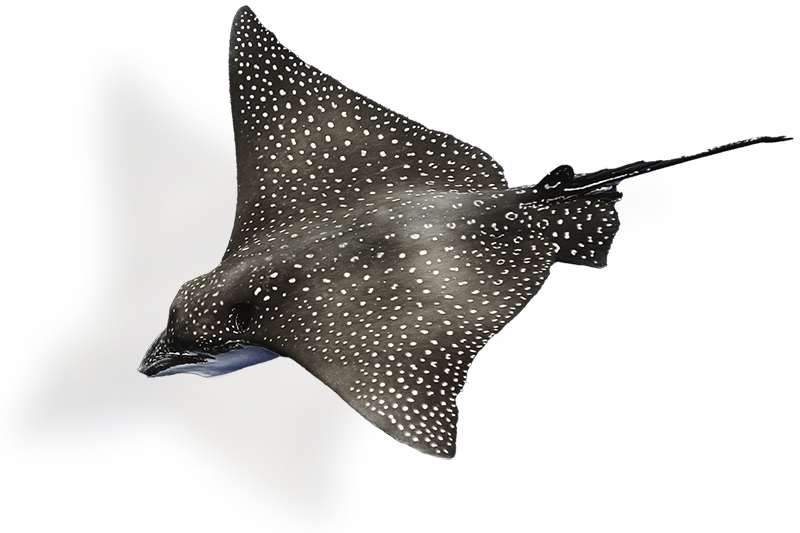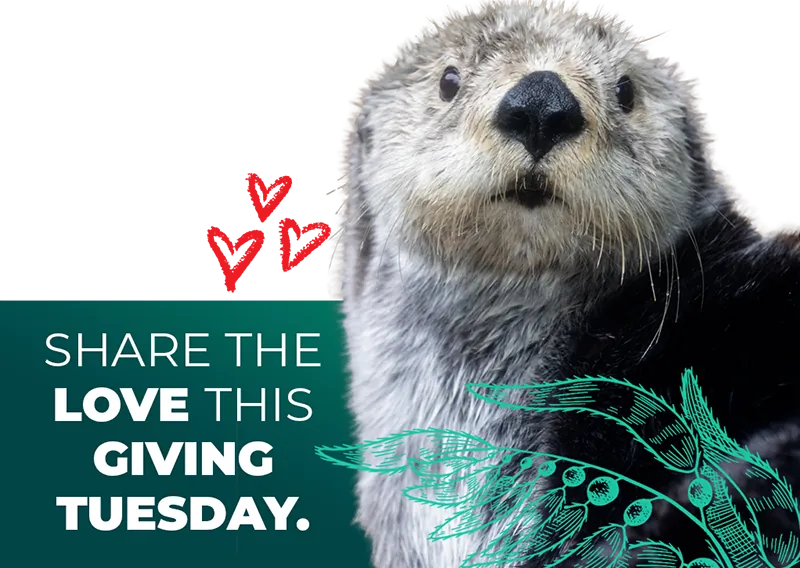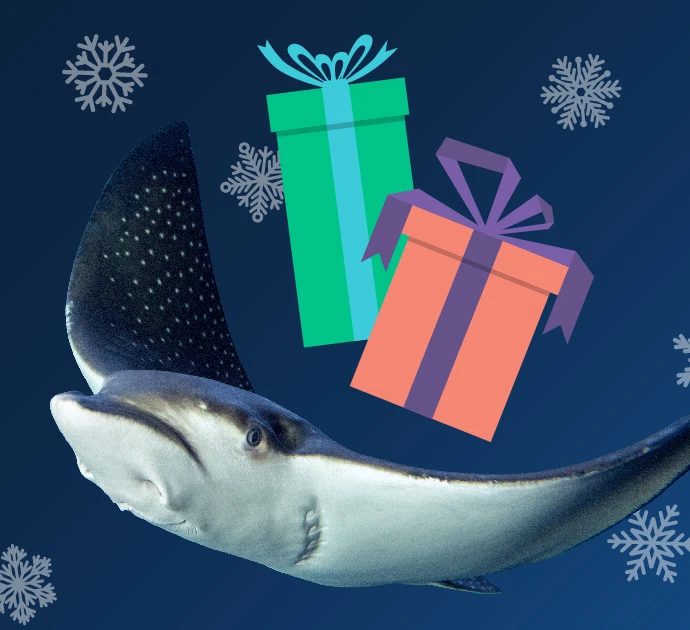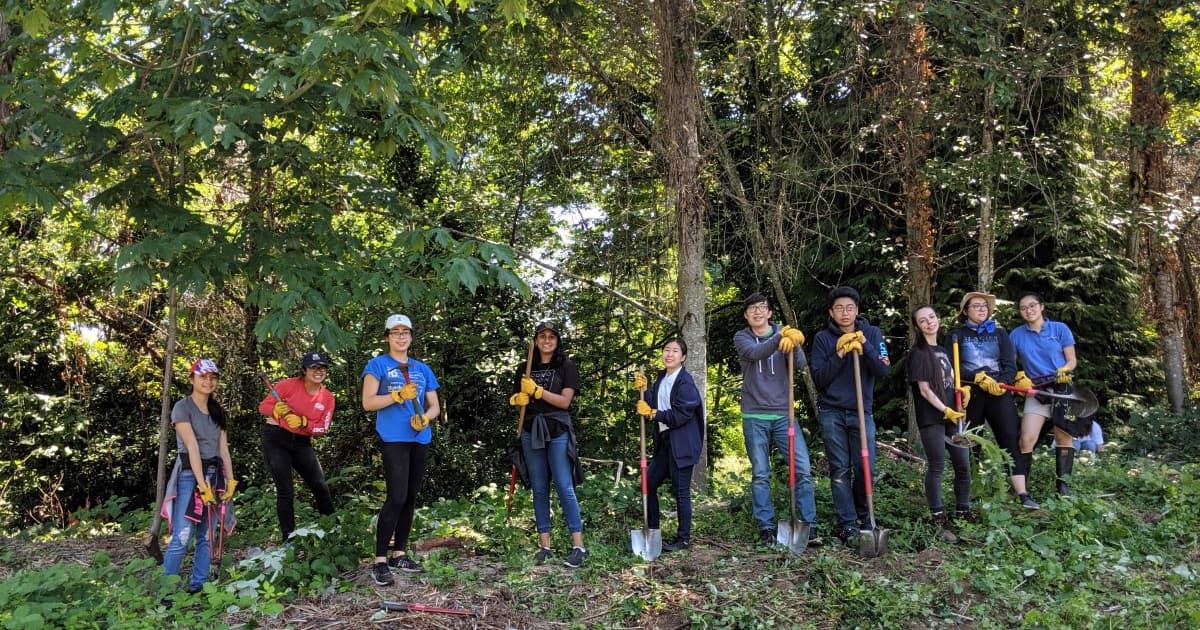
Kids of all ages love visiting the Aquarium to see the animals—but did you know some of them also support the Aquarium’s mission on their own time? Teens in our Youth Ocean Advocates (YOA) program, open to students in grades 9–12, volunteer for a variety of marine conservation and advocacy activities during the school year or over the summer.
Youth Ocean Advocate Samantha-Lynn Martinez told us, “I went into this program with virtually no marine science background, nor interest in public speaking or interactions with strangers, but I came in with a big heart for marine life and a willingness to learn and step outside of my comfort zone.”
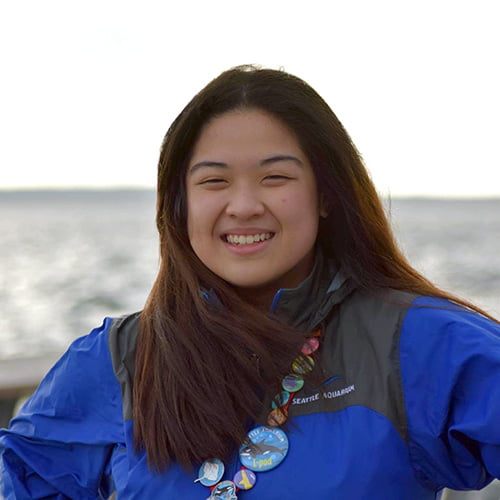
Karla Fox is equally inspired by the YOA program. “Whether you come in thinking you know everything there is to know about marine life, or you come in potentially being able to identify a sea otter, you’ll find your place.”
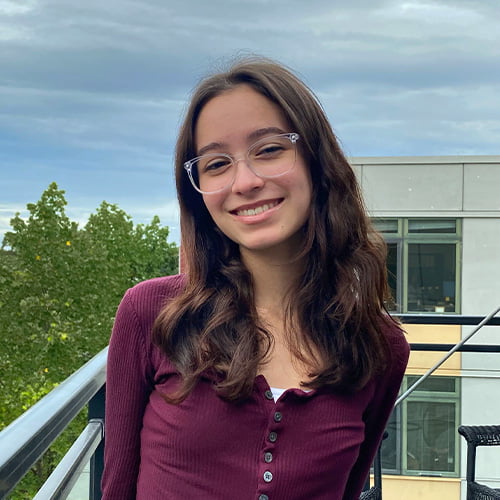
These two young people answered questions from of our state’s most influential educators, politicians and businesspeople―including Governor Jay Inslee and Bill Gates―at a recent conference promoting legislative advocacy called Educators for Environment, Equity and Economy. High school students from across the state were invited to discuss their interests and motivations related to the environment and respond to dozens of questions from local leaders.
Teens participated in a series of discussions on the importance of marine conservation. Samantha-Lynn facilitated a discussion, and both students took part in multiple panels. They spoke on topics such as developing environmental empathy in young people and social justice for vulnerable communities disproportionally affected by environmental degradation. Educators and teachers also spoke about what they wanted to achieve and what they could do to help amplify young voices.
By the end of the event, students had created a list of recommendations for leaders, including:
- Work together to develop strategies both in and out of school.
- Provide learning experiences that are project based and address real-world problems.
- Create learning environments that are inclusive.
- Develop a mentor program.
- Incorporate climate change as a part of regular school curriculum.
- Develop a program to educate youth about government policy and the politics of climate change.
- Continually listen to youth when working on issues related to climate.
The leaders listened. It was a beneficial meeting of the minds on all levels and validated the importance of hearing from teens when developing youth learning programs both in and out of school.
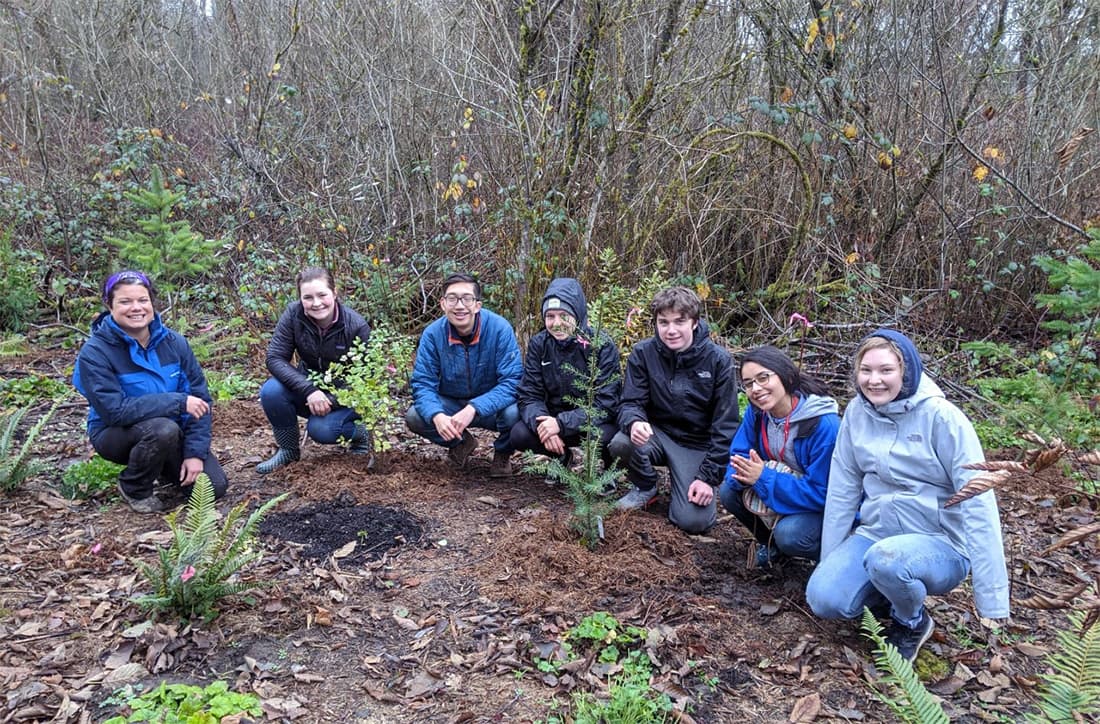
Not only do our YOAs make significant contributions to the future of environmental conservation—the program can also give them a jump start on their careers. As a freshman at the University of Washington, Samantha-Lynn is already well on her way. “After dipping my toes in guest engagement/education and presenting, I’ve decided to pursue a Conservation Biology and Marine Biology degree at the UW with hopes to attend grad school for a master’s in the communications field of either design or wildlife film.”
High school junior Karla has her eye on a similar career. “The Aquarium has helped me realize that I’m passionate about conservation, marine life and working with others. I can’t wait to see where that takes me.”
Interested in learning more about the Seattle Aquarium Youth Ocean Advocates program? As Samantha-Lynn told us, “Come as you are and discover something new along the way!”
